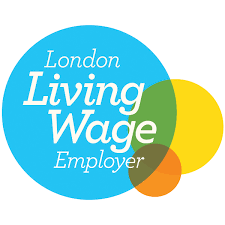Fair Finance - A lender providing loans for people on benefits...
Many people in the UK have had their working life disrupted due to the Covid-19 pandemic. Unemployment is currently estimated at around 4.9%, higher than before the pandemic, and may be set to rise further by the end of the year as government support systems such as furlough come to an end.
Businesses in the hospitality, retail and entertainment sectors have been particularly badly affected by the pandemic, and many younger workers in these sectors have lost their jobs.
In our recent article How to start claiming benefits we looked at the range of benefits available to you if you have lost your job during the pandemic. But what happens to those benefits when you find a new job? Do any of them continue or do they stop altogether?
In this article we take a look at four benefits that may continue even when you are working again. These benefits are:
We will also look at what you have to do to make sure that you receive the benefits to which you are entitled.
Jobseeker’s Allowance (JSA)
The new style Jobseeker’s Allowance (JSA) is designed to help you when you’re looking for work. If you are already eligible for, and receiving JSA, this could also continue after you start work if you are working less than 16 hours a week. To qualify, you need to be available to work full time and actively looking for full-time work.
Employment and Support Allowance
The Employment and Support Allowance (ESA) is available to help you if you have any kind of disability or health condition that affects how much you can work. This is known as having limited capability for work. If this is the case, you may still be eligible for ESA if you are employed or self-employed.
You may also be entitled to a Personal Independence Payment (PIP) if your physical or mental condition means that you need help with daily activities such as moving around, preparing/eating food, personal hygiene or dressing/undressing. You could be eligible for a PIP whether or not you are working, have paid NI contributions or have savings.
Income Support
If you are working less than 16 hours a week, and your partner less than 24 hours a week, are still on a low income, and have less than £16,000 in savings, you may be eligible to continue receiving Income Support if you are already doing so.
Be aware that you are no longer able to make a new claim for Income Support, as this has now been replaced by Universal Credit.
Universal Credit
Universal Credit is a monthly payment to help with your living costs if you are on a low income. You may still be eligible for some level of Universal Credit payment even if you start a new job. It all depends on your overall income.
How to find out what you are entitled to
The best place to start is by speaking to your Jobcentre Plus work coach. He or she can provide general help and guidance as you ease back into work again, and will also be able to help you sort out changes to your benefits.
You can also get impartial advice by using Fair Finance’s free online benefits calculator. All you need to do is to answer a few simple questions about your circumstances, your household and your finances. The calculator will then provide information about any benefits and grants to which you are entitled, and advise how to go about claiming these.
You may also be able to get some temporary assistance with mortgage, rent or Council Tax payments for up to 4 weeks after you start your new job, through one of the following schemes:
The aim of all the above benefits is to enable you to achieve a workable level of income, including in the transition period between not working and becoming established in work again.
If you need a further financial buffer to see you through this time, be aware that Fair Finance offers loans for people on benefits which may be able to help.
Remember to check back here soon for more financial and lifestyle tips from Fair Finance.




